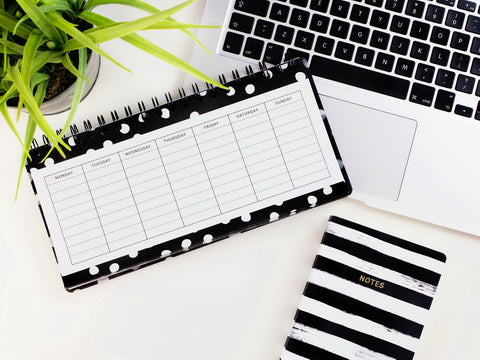A big worry of many people is maintaining your brain’s function and capacity as you inevitably age. Nobody wants to feel like they’re slowly becoming more forgetful as time goes by!
Thankfully, keeping your brain in working order as you get older isn’t an insurmountable challenge.
Here are some simple, fun, and relaxing activities that each carry their cognitive benefits. Try a few of these out, and your gray matter will thank you later!
1. Work Up a Sweat

Exercise isn’t exclusively the realm of bodybuilding, sprinting, or showing off at Zumba. The benefits of exercise, even that of light intensity, go far beyond the body and into the mind. The
Harvard Health Letter notes that exercise produces some physical changes with curious impacts on the brain, most notably in the way that exercise reduces inflammation and stimulates your body’s production of growth factors¹.
Keeping inflammation down has the preventative benefits of reducing brain disorder and disease, like dementia. Most exciting of exercise’s impact on the mind, however, is the creation of growth factors that protect existing brain cells, build new brain cells, and grow new blood vessels, all of which can help keep your brain healthy for life.
2. Drop Everything And Read
Literary narratives, nonfiction research, and other forms of the written word can teach us new things and let us explore philosophical questions. Not only do books invite us to think, but they also
make us better at thinking in general². The task of parsing and decoding written words contributes to the development of white matter in our brain, where the information in our gray matter gets transferred back and forth as our brains make neural connections.
White matter production isn’t where it stops, either. The white matter that develops through the truly complex task of reading and understanding a piece with a grand narrative or substantial information is more efficient at handling neural connections, making your brain work both harder, as well as smarter.
3. Explore Your Artistic Side
Great artists have inspired us for generations, but Michelangelo didn’t wake up with magic fingers on one fateful morning. A more likely story is that he practiced his craft for endless hours, and in the process, reaped both the
visuospatial and neural connectivity benefits of producing art that helped him get better and better over time³.
Picking up a paintbrush, molding some clay, or even breaking out the crayons can be a relaxing activity that all ages can enjoy, and it also creates stronger connections between the sectors of the brain controlling your visual imagination and your motor faculty. Even if what ends up on the canvas bears little resemblance to your envisioned masterpiece, your brain was building new neural pathways the entire time. The result is improvements in cognition that pay dividends even as you age.
4. Write It Down!

Advances in cloud computing technology have created a world in which information stored digitally can be accessed just about anywhere. These advancements in technology is a dream come true for business and individuals, and has led to a trend of many students taking notes on their laptop computer that they can then access from their phones or other computers. Though this may solve the problem of a missing notebook, the students are missing out on some stellar cognitive benefits that handwriting provides.
These benefits are twofold.
Research from the Association for Psychological Science showed that handwritten notes and anything handwritten in general, are much more likely to be remembered than something typed⁴. Not only is the information immediately pertinent stored in the brain better, but handwriting also activates all of your brain, requiring excellent motor skills, memory recall, and spatial awareness. Compare that to typing, which only necessitates you peck the right key. Using your brain’s full potential keeps it healthy, just like a muscle would during exercise. Use it or lose it!
5. Channel Your Inner Rock Star
Your average music icon might not seem like the most intelligent person ever, but there are undoubtedly other factors that account for that. An interesting
study from the Journal of Applied Gerontology found that playing musical instruments were correlated with better outcomes in cognition among adults when compared with the non-virtuoso group⁵.
Playing music requires much-divided attention, from using your brain’s sensory capacity by recognizing notes you hear, to using your memory when recalling a song, to finally using your fine motor skills to play the right notes in time. It’s an activity that makes your brain and body work together in distinct unison and creates a lot of new neural pathways in the process.
6. Find Some Inner Peace
Meditation might conjure an image of monks sitting serenely atop a mountain temple. While that’s not totally incorrect, meditation can’t be discounted as a powerful tool that everyone can use for relaxation, improving sleep, and spiritual development. Meditation also produces some cognitive benefits that can keep your brain in excellent condition, no matter your age.
A computational model produced by the American Psychological Association found that continued practice of meditation produced improvements in the cognitive functions of decision-making and memory, both key areas to target when age-related brain function is of concern⁶. A little bit of “ohm” may help stop a whole lot of “um” later on in life!
7. Modify Your Routine
A fundamental truth about the way our brains work is that they crave variety, of any kind. While it’s true that a daily routine can be a source of security, comfort, and dependability, the human brain requires new stimuli to build and maintain its network of connections and memories⁷.
Keeping your routine fresh doesn’t mean you should pack up your bags and move to a new country every week; instead, simple changes that make your brain wonder what’s happening next provide neurogenesis benefits that can keep you sharp for as long as you keep exploring. Try tea instead of coffee one morning, or put on a podcast instead of music. The benefits of new routines is also an excellent excuse for you to try that new restaurant; it’ll keep you wired for success and on top of your game at any age.
(1) Godman, H (April 2014) Regular exercise changes the brain to improve memory, thinking skills
(2) Beres, D (September 2017) How reading rewires your brain for higher intelligence and empathy
(3) Bolwerk, A; Mack-Andrick, J; Lang, F. R; Dörfler, A; Maihöfner, C (July 2014) How art changes your brain: differential effects of visual art production and cognitive art evaluation on functional brain connectivity
(4) Mueller, P; Oppenheimer, D (April 2014) The Pen Is Mightier Than the Keyboard: Advantages of Longhand Over Laptop Note Taking
(5) Schneider, C; Hunter, E; Bardach, S (January 2018) Potential Cognitive Benefits From Playing Music Among Cognitively Intact Older Adults: A Scoping Review
(6) van Vugt, M.K (2015) Cognitive benefits of mindfulness meditation
(7) Oppong, T (September 2017) Break Your Routine to Maximize Your Cognitive Potential (Your Brain Benefits From New Experiences)

 Exercise isn’t exclusively the realm of bodybuilding, sprinting, or showing off at Zumba. The benefits of exercise, even that of light intensity, go far beyond the body and into the mind. The Harvard Health Letter notes that exercise produces some physical changes with curious impacts on the brain, most notably in the way that exercise reduces inflammation and stimulates your body’s production of growth factors¹.
Exercise isn’t exclusively the realm of bodybuilding, sprinting, or showing off at Zumba. The benefits of exercise, even that of light intensity, go far beyond the body and into the mind. The Harvard Health Letter notes that exercise produces some physical changes with curious impacts on the brain, most notably in the way that exercise reduces inflammation and stimulates your body’s production of growth factors¹.

 Advances in cloud computing technology have created a world in which information stored digitally can be accessed just about anywhere. These advancements in technology is a dream come true for business and individuals, and has led to a trend of many students taking notes on their laptop computer that they can then access from their phones or other computers. Though this may solve the problem of a missing notebook, the students are missing out on some stellar cognitive benefits that handwriting provides.
Advances in cloud computing technology have created a world in which information stored digitally can be accessed just about anywhere. These advancements in technology is a dream come true for business and individuals, and has led to a trend of many students taking notes on their laptop computer that they can then access from their phones or other computers. Though this may solve the problem of a missing notebook, the students are missing out on some stellar cognitive benefits that handwriting provides.

